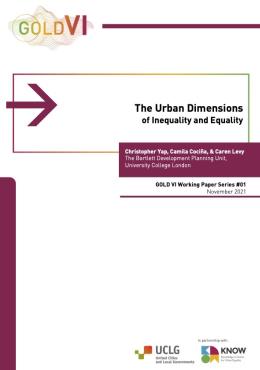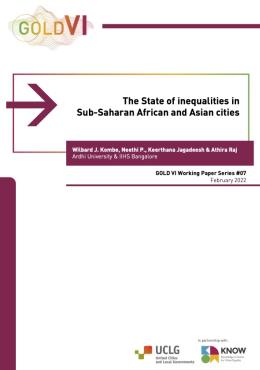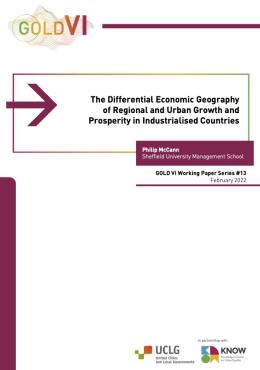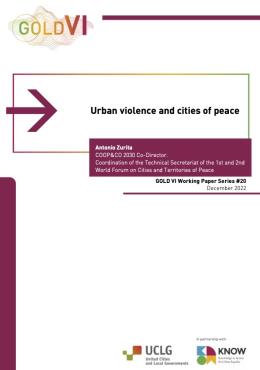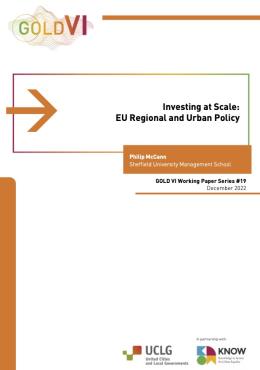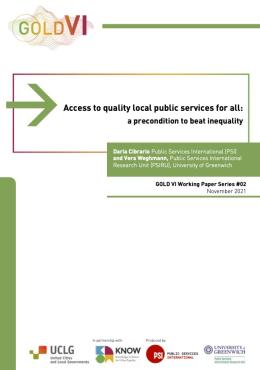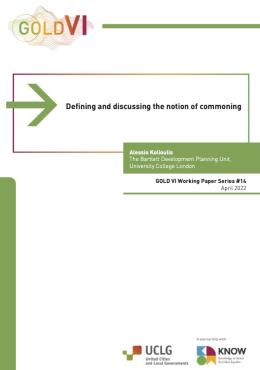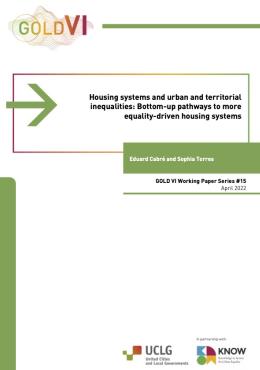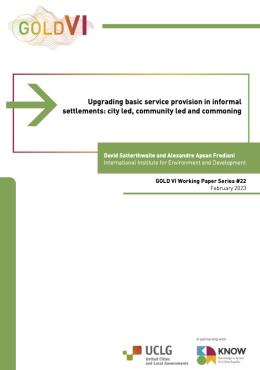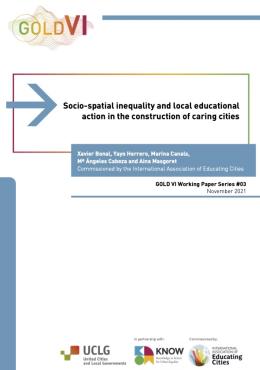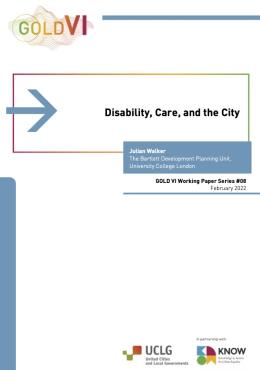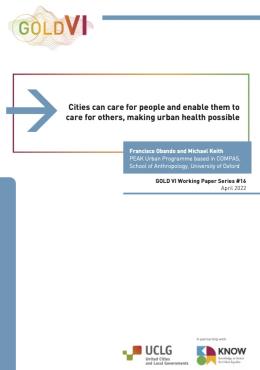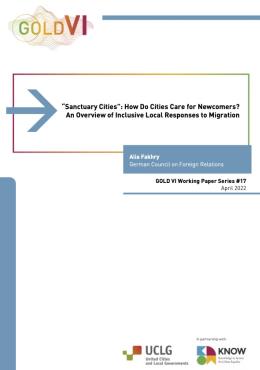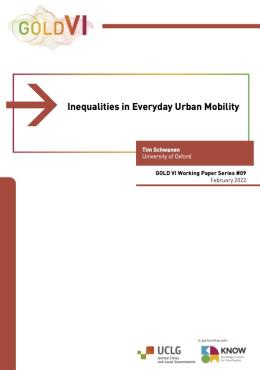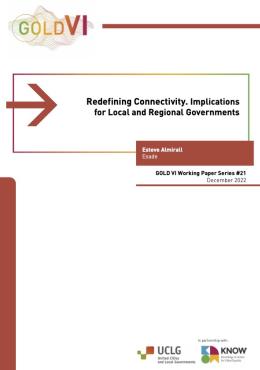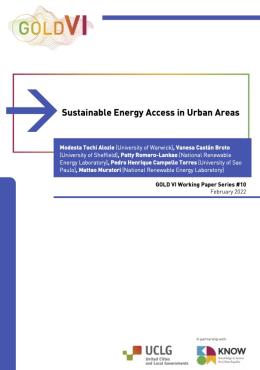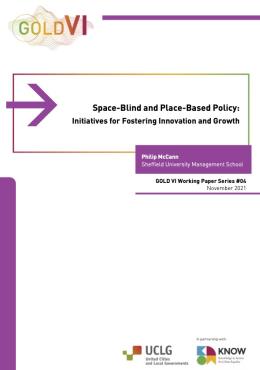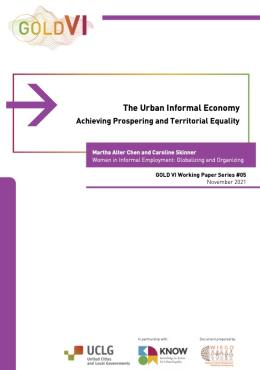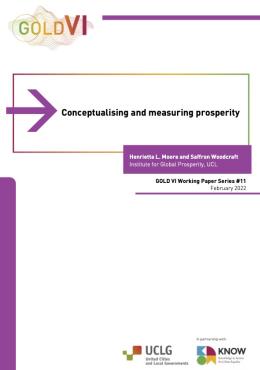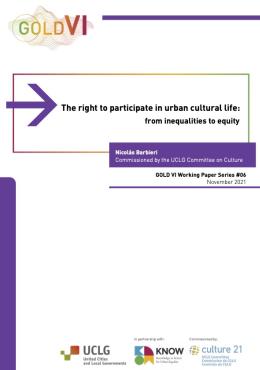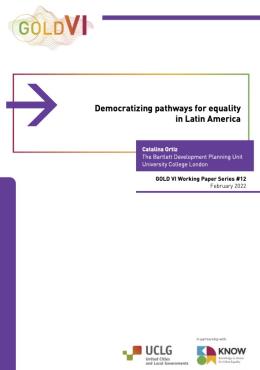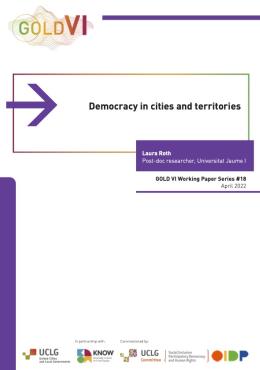Three years ago, the organized municipal movement led by UCLG made it clear that for LRGs, allowing inequalities to continue growing was simply unacceptable.
On the basis of this mandate, the sixth edition of the GOLD report was jointly produced by UCLG and the KNOW project (DPU - University College London) and launched during the UCLG World Congress, which took place in Daejeon (Republic of Korea) in October 2022.
What is the GOLD VI report?
The GOLD VI report, titled “Pathways to Urban and Territorial Equality: Addressing inequalities through local transformation strategies”, is a collective effort to put inequalities at the center of urban and territorial questions. The report actively looks for ways to address inequalities through local transformation strategies.
The GOLD VI is an action-oriented report. It aims at understanding the state of urban and territorial inequalities worldwide and promoting the centrality of local and regional governments (LRGs) in tackling this global challenge.
Visit the dedicated GOLD VI website! It now provides easy access to the GOLD VI report and its executive summary in English, French and Spanish, as well as the 22 Working Papers and 66 Case-Based Contributions that enriched the GOLD VI process.
How can local and regional governments address inequalities?
The report aims to provide LRGs with concrete tools to tackle inequalities. Therefore, it analyzes evidence of and articulates possible responses to the multiple manifestations of inequalities, focusing especially on their territorial dimension, and the opportunities for local and regional governments to take practical and where possible collective action against those inequalities. It also explores the conditions under which the cocreation of pathways to equality is possible, and highlights the challenges and alternatives facing urban and territorial governance. They aim to inspire LRGs to develop strategies that satisfy the current needs of our communities but also to safeguard the aspirations of generations to come.
What are the pathways towards equality?
GOLD VI is organized through a series of chapters that present pathways that local governments, in collaboration with other levels of government and with civil society, are taking to advance towards equality:
- Commoning proposes alternatives to access adequate housing, land and public services away from violence and discrimination;
- Caring seeks to acknowledge and promote the redistribution of care work while calling upon LRGs’ role and capacity to care for their populations through local public provision, such as through education, culture or health services;
- Connecting addresses the need for adequate physical and digital connectivity for all, focusing on sustainable mobility and bridging the digital divide;
- Renaturing proposes more sustainable ways of interacting with our natural systems that are also respectful of social justice;
- Prospering proposes to protect livelihoods and promoting the social economy, local food systems and sustainable local economic development;
- Democratizing looks at ensuring inclusive and meaningful participation and safeguarding local democracies.
Finally, the report highlights a collective vision with five key cross-cutting principles (and corresponding political recommendations) that are required to guide the implementation of these pathways (see the Conclusion). The principles relate to the need of adopting a rights-based approach, proximity, new governance culture, fiscal and financial architecture, and engaging with time frames that look beyond electoral cycles to effectively advance urban and territorial equality.
Through the lens that each of these chapters offers, a diversity of themes are addressed, such as issues related to informality, housing, land, basic services, education, urban health, migration, violence and discrimination, food security, sustainable transport, digital connectivity, decent livelihoods, resilience, energy transition, decarbonisation, culture, finance, regional inequalities, all within a framework of political participation and accountability.
IBCs and CBCs: Why are these contributions key to the GOLD VI report?
The GOLD VI report was coproduced through an engaged international process with over a hundred local and regional governments, civil society organizations and experts. As such, GOLD facilitated a rich process of supporting and strengthening multi-stakeholder dialogues and ensuring the participation and involvement of UCLG members.
The chapters and pathways of the GOLD VI report draw directly on the wealth of knowledge and experience included in the Working Paper Series and the Pathways to Equality Cases Repository. These two key contributions bring together 22 Issue-Based Contributions and 66 Case-Based Contributions, respectively.
Looking ahead: how can capitalizing on the GOLD VI process contribute to the Pact for the Future?
Eliminating all forms of social and territorial inequalities is essential to implement the UCLG Pact for the Future and to achieve the global development agendas. The six pathways that LRGs can advance together with their local communities are GOLD VI’s main contribution to the three pìllars of the Pact: People, Planet and Government.
The UCLG World Secretariat and the main partners of the GOLD VI report are therefore committed to continuing to bring the report and its proposals to life, as well as the alliances on which it is based, through a capitalization process that has two main purposes:
- Continue to contribute to the work of the whole UCLG network and its World Secretariat to deploy the Pact for the Future, by extending and deepening the creation and exchange of knowledge, and fostering local initiatives for equality. The pathways offer contributions to the different processes and mechanisms through which the Pact is to unfold, by providing a ground for articulating the different axes of the Power of We. The width and depth of the knowledge and alliances produced through the GOLD VI process allow for these contributions to take different shapes, contributing to the Pact for the Future in different manners.
- In parallel, bring out the dialogues, debates, and priorities for researching with UCLG, which could form the basis of the next GOLD report.


